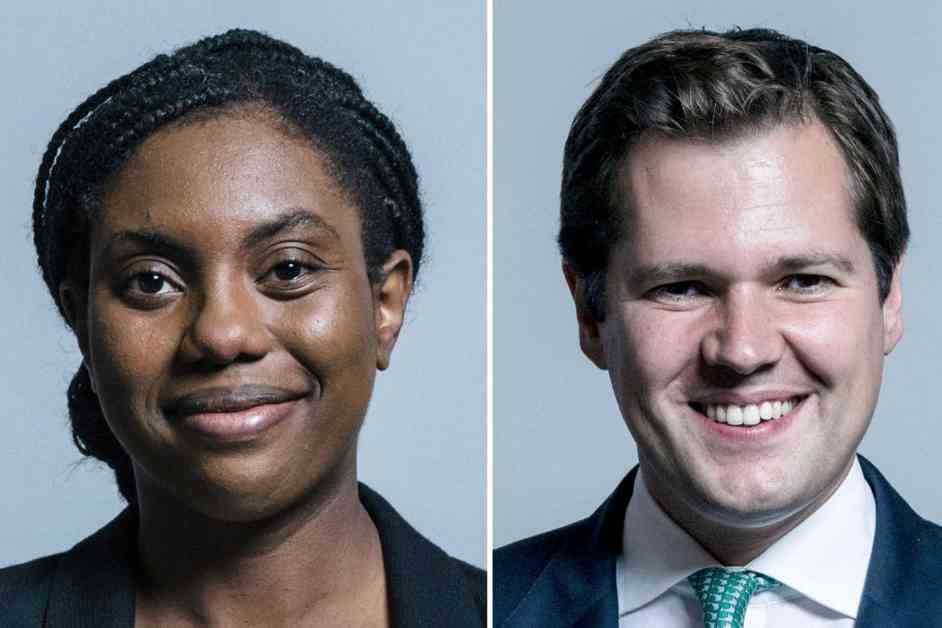After James Cleverly’s unexpected exit from the Tory leadership race, the competition has intensified between Kemi Badenoch and Robert Jenrick. The two right-wing candidates are now vying for the leadership position, with tensions rising between their supporters.
Following the recent vote that eliminated the frontrunner to succeed Rishi Sunak, the battle lines have been drawn between Badenoch and Jenrick. Supporters from both camps have already started attacking each other, with Sir John Hayes MP, a Jenrick supporter, criticizing the idea of having an “irascible leadership.” In response, Nigel Huddleston MP, who backs Badenoch, suggested that Jenrick has “too many specific policies,” possibly referring to his plan to withdraw Britain from the European Convention on Human Rights.
As the right-wing leadership final approaches, the Conservative Party faces one of its most contentious leadership battles in history. The clash between Badenoch and Jenrick has sparked a civil war within the party, with both candidates being seen as strong right-wing figures.
With the upcoming TV debate scheduled for 17th October, hosted by GB News, the showdown between Badenoch and Jenrick is expected to be a pivotal moment in the Tory leadership race. The program, titled ‘Decision Time: The Race To Lead,’ will be broadcasted from 7 pm to 9 pm, providing party members and the public with a chance to witness the candidates in action.
The growing concerns over potential tax increases, particularly in National Insurance contributions, have added another layer of complexity to the political landscape. Chancellor Rachel Reeves is preparing for the Autumn Budget on 30th October, and the possibility of a hike in National Insurance rates has raised alarms among the public. With the Institute for Fiscal Studies estimating the need for up to £25 billion in tax increases to sustain public spending, the economic implications of these decisions are significant.
In the midst of these developments, other key figures in the political arena have also made headlines. Business and trade secretary Jonathan Reynolds has pledged to improve living standards for all, reassuring pensioners that the government is committed to their well-being. However, Unite the union has raised concerns about the limitations of Angela Rayner’s Employment Rights Bill, highlighting gaps that could be exploited by employers.
As the political landscape continues to evolve, former Brexit minister Steve Baker’s endorsement of Kemi Badenoch and Boris Johnson’s hints at a potential return to front-line politics add further intrigue to the unfolding narrative. The dynamics within the Conservative Party, the economic challenges facing the government, and the ongoing debates over workers’ rights underscore the complexity of the current political climate in the UK.












